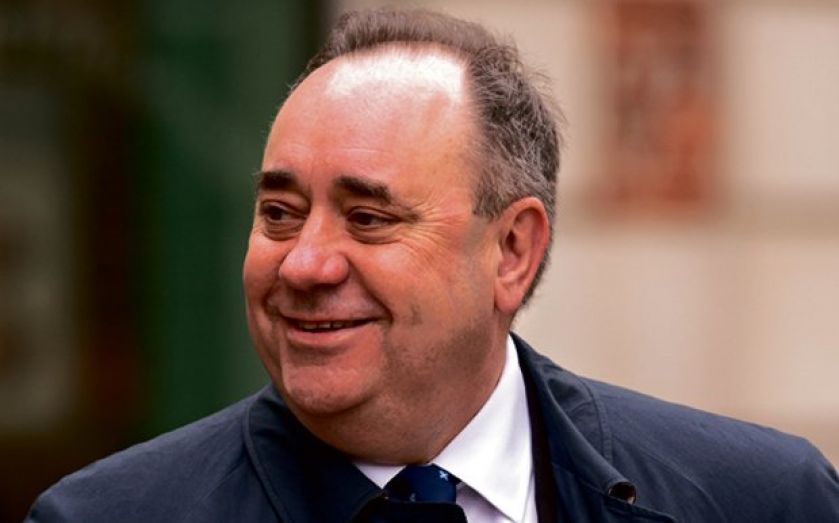Alex Salmond’s independence fairytale won’t serve Scottish voters well

SIR JAMES Mirrlees is one of the mere handful of British recipients of the Nobel Prize in economics. And as his fine old Scottish surname might suggest, he has been active in the debate on independence. His latest intervention, which has attracted considerable publicity, is to pronounce that an independent Scotland should be willing to repudiate its share of the UK’s public sector debt. This would be, Mirrlees asserts, a bargaining chip to be used to ensure that a currency union with the rest of the UK will be set up. The Bank of England would continue to act as a lender of last resort to the Scottish banking system.
We might usefully recall the nature of the distinguished work which led to Sir James being elected to the Nobel Laureate. It is almost as far removed from monetary theory as it is possible to be in economics, consisting of some highly mathematical work on the concept of optimal rates of tax. It implies that marginal tax rates should fall, not rise, with income. Indeed, the marginal rate on the highest earner of all should be zero. This rather limits its use in practice.
The idea that one of the first acts of a fledgling nation should be to repudiate its debts seems similarly impractical. Such an act would immediately brand Scotland as part of the club formed by countries like Argentina and Russia, serial defaulters with dodgy economies.
The debate in Scotland is pervasive, dominating both the media and many personal relationships, as even a cursory visit to the country will make clear. But it has a fairytale quality to it, with the pro-independence camp, like the Red Queen in Alice in Wonderland, inviting the electorate to believe at least six impossible things before breakfast.
A persistent theme is that Scotland is so important that everyone will simply fall in with its demands. The main political parties in the UK may insist that the Bank of England will not underwrite the Scottish banking system after independence. But this is mere bluff, the nationalists explain. Scotland is too valuable to the rest of the UK. The European Commission may say, not once but several times, that Scotland would cease to be a member of the EU if it left the UK, and would have to apply to re-join. But they are wrong! Europe could not afford to be without Scotland. Leading analysts may say that Spain and Belgium would veto any such application, but those countries do not know their own minds. Scotland, with its vast population of 5m, will exercise its influence.
In fact, the fundamental problem facing an independent Scotland would be the familiar one of a small, social democrat government in a globalised system. Its freedom to act independently, to have high public spending and at the same time keep interest rates low, is very constrained. It is very tempting to wish them “oan yir merry way!” and let them find out. But that would be unfair to the many thoughtful Scots who continue to see the benefits of the Union.
